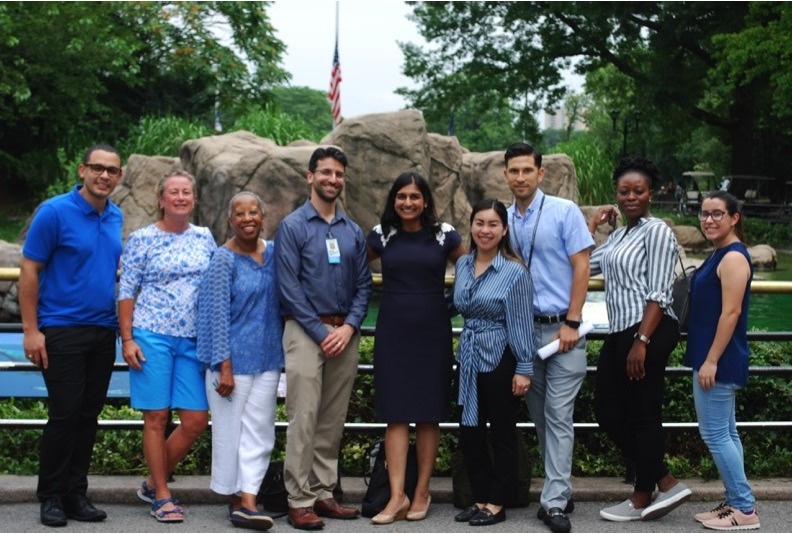Supporting Emerging Adults with Diabetes (SEAD) Program
Helping young adults with type 1 diabetes make the transition to adult care
The Supporting Emerging Adults with Diabetes program, part of the Fleischer Institute for Diabetes and Metabolism at Montefiore and Einstein, is a comprehensive program dedicated to the care of young adults, aged 16-35 years, living with type I diabetes (T1D). We offer cutting edge medicine and access to the latest diabetes technologies in addition to an array of events and programming to address the struggles and successes of living each day with diabetes.
Young adults with T1D will find the individualized support and comfort they need to work toward positive long-term outcomes in quality of life and improved health. At SEAD you’ll find a multidisciplinary team offering comprehensive and compassionate care designed for young adults with T1D. The program includes support that addresses not only medical and nutritional needs, but also the psychosocial and developmental needs unique to this age group in addition to peer support.
Recently diagnosed? SEAD offers a range of services to educate you on your condition and get you acclimated to managing your diabetes on your own.
Moving from pediatric care to an adult diabetes provider? Our Transitions Clinic provides unique, tailored, compassionate care and services to young adults to support transition to adult care.
Contact us
To learn more, refer a patient, or find out how SEAD can help you, call 844-556-6683 X 32
Locations
1180 Morris Park Avenue
2nd Floor
Bronx, NY 10461
Entrance is on Hering Avenue
150 White Plains Road, Suite 200
Tarrytown, New York 10591




